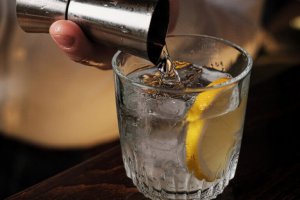How Alcohol Affects Sporting Performance

As one of the drugs allowed by the IOC, alcohol is often used by athletes to relax and unwind after a hard training session. However, there’s a high cost of drinking alcohol, both for your health and your sporting performance. So, today, we’ll look at how alcohol affects sporting performance.
Alcohol affects sporting performance in the days afterward
Alcohol has an inflammatory and stress modulating properties [1]. This means that the body’s performance is reduced in the days after drinking it.
In fact, it can take the human body at least 48 hours to recover from a large intake of alcohol, and during this time, your sporting performance will be reduced.
The clearest symptoms in the days after consuming alcohol are fatigue and exhaustion. Your muscles may be weaker and you might become dizzy when training.
It’s not yet clear whether alcohol increases the risk of muscle injury. However, there are authors who closely associate it with this problem, especially if it’s consumed post-training. This is due to its hypoglycemic effects. It’s also a strong diuretic and increases the risk of dehydration.
It’s clear that drinking alcohol after strenuous exertion is totally counterproductive for muscle recovery [2]. And this means that your performance will be significantly reduced for your next training sessions.

The myth of alcohol and antioxidants
Until a few years ago, daily consumption of wine was linked to an improvement in antioxidant capacity. Experts believed it was good for cardiovascular health and thus recommended it.
The antioxidant capacity of wine comes from resveratrol. This is a substance found in black grapes and alcoholic fermentation isn’t necessary.
This means that simply eating grapes can have an important beneficial effect on your health. However, this effect is much lower after fermentation.
Drinking alcohol also increases the risk of complex diseases in the medium and long term and is directly related to liver problems and various types of cancer.
So, if you want to get the beneficial effects of resveratrol, it’s not worth drinking wine. Eat raw black grapes instead without suffering the effects of alcohol.
Antioxidants and sport
Consuming antioxidants and foods with anti-inflammatory properties can be beneficial if you’re involved in sports. This is why there’s been a boom in recent years in the consumption of seeds, omega-3 acids, turmeric, and other vegetables.
Antioxidants help to fight the wear caused by high-intensity sports. They also reduce the levels of free radicals in the body and improve strength after strenuous exercise.
Anti-inflammatory substances help to control muscle or joint inflammation processes after physical exercise. This way, you’ll recover more quickly and effectively and have reduced risk of subsequent injury.

To get as many of these nutrients as possible, it’s a good idea to increase your intake of fruit and vegetables. You can also try certain supplements such as omega-3, turmeric, or vitamin D. These diet strategies, combined with proper rest and abstaining from alcohol, will guarantee optimal recovery after exercise.
How alcohol affects sporting performance: conclusion
Drinking alcohol is harmful to your body, not just your sporting performance. It increases inflammation, dehydration, and the risk of injury in the days after exercise.
It can also lead to increased fatigue and a feeling of exhaustion, which means that elite athletes often avoid it completely.
So, despite being allowed by the IOC, it’s a good idea to limit your alcohol intake as much as possible. Instead, try increasing your intake of antioxidants, vitamins, and foods with anti-inflammatory properties.
Try to make sure that you eat at least five pieces of fruit and vegetables every day. That way, you’ll be able to maximize your muscle recovery and minimize the risk of injury in your following training sessions.
As one of the drugs allowed by the IOC, alcohol is often used by athletes to relax and unwind after a hard training session. However, there’s a high cost of drinking alcohol, both for your health and your sporting performance. So, today, we’ll look at how alcohol affects sporting performance.
Alcohol affects sporting performance in the days afterward
Alcohol has an inflammatory and stress modulating properties [1]. This means that the body’s performance is reduced in the days after drinking it.
In fact, it can take the human body at least 48 hours to recover from a large intake of alcohol, and during this time, your sporting performance will be reduced.
The clearest symptoms in the days after consuming alcohol are fatigue and exhaustion. Your muscles may be weaker and you might become dizzy when training.
It’s not yet clear whether alcohol increases the risk of muscle injury. However, there are authors who closely associate it with this problem, especially if it’s consumed post-training. This is due to its hypoglycemic effects. It’s also a strong diuretic and increases the risk of dehydration.
It’s clear that drinking alcohol after strenuous exertion is totally counterproductive for muscle recovery [2]. And this means that your performance will be significantly reduced for your next training sessions.

The myth of alcohol and antioxidants
Until a few years ago, daily consumption of wine was linked to an improvement in antioxidant capacity. Experts believed it was good for cardiovascular health and thus recommended it.
The antioxidant capacity of wine comes from resveratrol. This is a substance found in black grapes and alcoholic fermentation isn’t necessary.
This means that simply eating grapes can have an important beneficial effect on your health. However, this effect is much lower after fermentation.
Drinking alcohol also increases the risk of complex diseases in the medium and long term and is directly related to liver problems and various types of cancer.
So, if you want to get the beneficial effects of resveratrol, it’s not worth drinking wine. Eat raw black grapes instead without suffering the effects of alcohol.
Antioxidants and sport
Consuming antioxidants and foods with anti-inflammatory properties can be beneficial if you’re involved in sports. This is why there’s been a boom in recent years in the consumption of seeds, omega-3 acids, turmeric, and other vegetables.
Antioxidants help to fight the wear caused by high-intensity sports. They also reduce the levels of free radicals in the body and improve strength after strenuous exercise.
Anti-inflammatory substances help to control muscle or joint inflammation processes after physical exercise. This way, you’ll recover more quickly and effectively and have reduced risk of subsequent injury.

To get as many of these nutrients as possible, it’s a good idea to increase your intake of fruit and vegetables. You can also try certain supplements such as omega-3, turmeric, or vitamin D. These diet strategies, combined with proper rest and abstaining from alcohol, will guarantee optimal recovery after exercise.
How alcohol affects sporting performance: conclusion
Drinking alcohol is harmful to your body, not just your sporting performance. It increases inflammation, dehydration, and the risk of injury in the days after exercise.
It can also lead to increased fatigue and a feeling of exhaustion, which means that elite athletes often avoid it completely.
So, despite being allowed by the IOC, it’s a good idea to limit your alcohol intake as much as possible. Instead, try increasing your intake of antioxidants, vitamins, and foods with anti-inflammatory properties.
Try to make sure that you eat at least five pieces of fruit and vegetables every day. That way, you’ll be able to maximize your muscle recovery and minimize the risk of injury in your following training sessions.
All cited sources were thoroughly reviewed by our team to ensure their quality, reliability, currency, and validity. The bibliography of this article was considered reliable and of academic or scientific accuracy.
- Kypri K., McCambridge J., Alcohol must be recognised as a drug. BMJ, 2018.
- Kingsland M., Wolfenden L., Tindall J., Rowland BC., Lecathelinais C., Gillham KE., Dodds P., Sidey MN., Rogerson JC., McElduff P., Crundall I., Wiggers JH., Tackling risky alcohol consumption in sport: a cluster randomised controlled trial of an alcohol management intervention with community football clubs. J Epidemiol Community Health, 2015. 69 (10): 993-9.
This text is provided for informational purposes only and does not replace consultation with a professional. If in doubt, consult your specialist.








